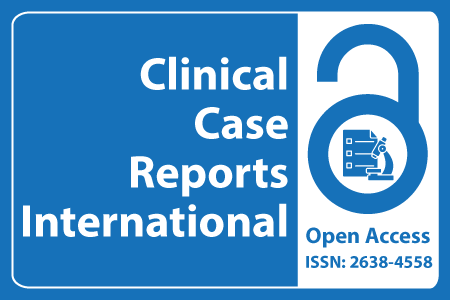
Journal Basic Info
- Impact Factor: 0.285**
- H-Index: 6
- ISSN: 2638-4558
- DOI: 10.25107/2638-4558
Major Scope
- Surgery
- Hepatology
- Sleep Disorders & Sleep Studies
- Sleep Medicine and Disorders
- Plastic Surgery
- Anatomy
- Hypertension
- Geriatric Medicine
Abstract
Citation: Clin Case Rep Int. 2023;7(1):1539.DOI: 10.25107/2638-4558.1539
Heavy Metal Induced Molecular Alteration Leads to Gallbladder Cancer
Manisha K, Geetika S, Munish S, Sunil K and Ranjit K
Department of Animal Science, Central University of Himachal Pradesh, India Department of Plant Science, Central University of Himachal Pradesh, India
*Correspondance to: Ranjit Kumar
PDF Full Text Review Article | Open Access
Abstract:
Gallbladder cancer is reported very high in northern India. One-fifth of all gallbladder cancer cases are reported only from northern part of India. The cases are more prominent in females than males. There were many risk factors associated with gallbladder cancer, but the heavy metals are play crucial roles in induction of gallbladder cancer. Heavy metal may interfere with molecular mechanism and activate mTOR, MAPK, and transcription factor. Hyper activation of cysteine due to arsenic exposure interfere with the function of the mTOR signaling pathway and taurine pathway that causes activation of c-fos, c-myc, and ELK-1 leading to enhance cell division causing gallbladder cancer. Lead, Nickel, Zinc, and chromium activate cholic acid which causes formation of gallstones through activated taurine pathway leading to inflammatory gallbladder disease and formation of gall stones. Prolonged inflammation and stones formation in gall bladder may cause loss of contact inhibition in gall bladder cells leading to gall bladder cancer. The combined mechanism of heavy metals activates different pathway leading to gallbladder cancer through activating cell cycle and angiogenesis, it also inhibits tumor- suppressing genes. It was evident that gallbladder cancer is associated with high levels of heavy metal exposure. Differential mechanism associated with different heavy metal leads to gall bladder cancer.
Keywords:
mTOR; MAPK; Taurine; Gall stone; Inflammation
Cite the Article:
Manisha K, Geetika S, Munish S, Sunil K, Ranjit K. Heavy Metal Induced Molecular Alteration Leads to Gallbladder Cancer. Clin Case Rep Int. 2023; 7: 1539.













